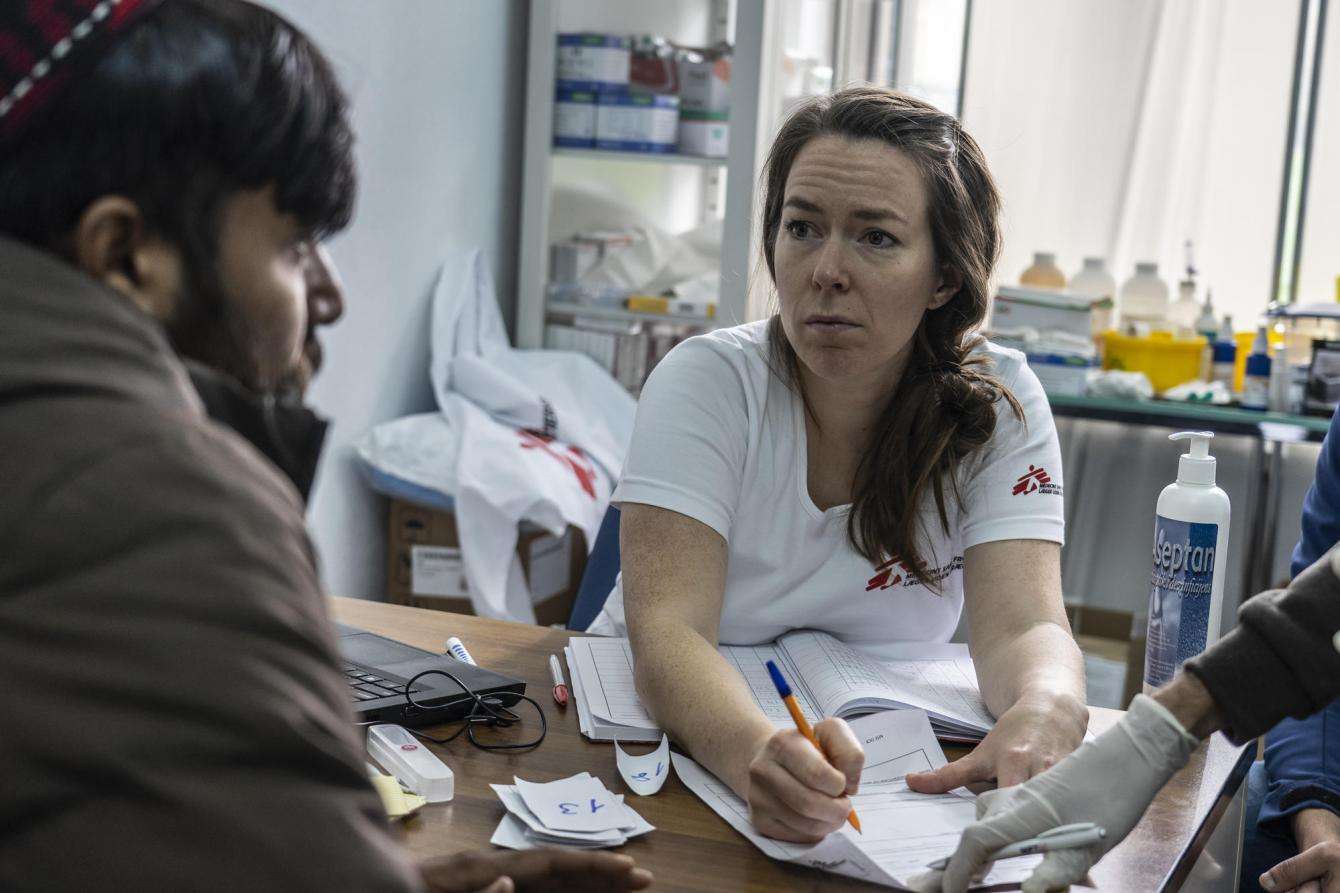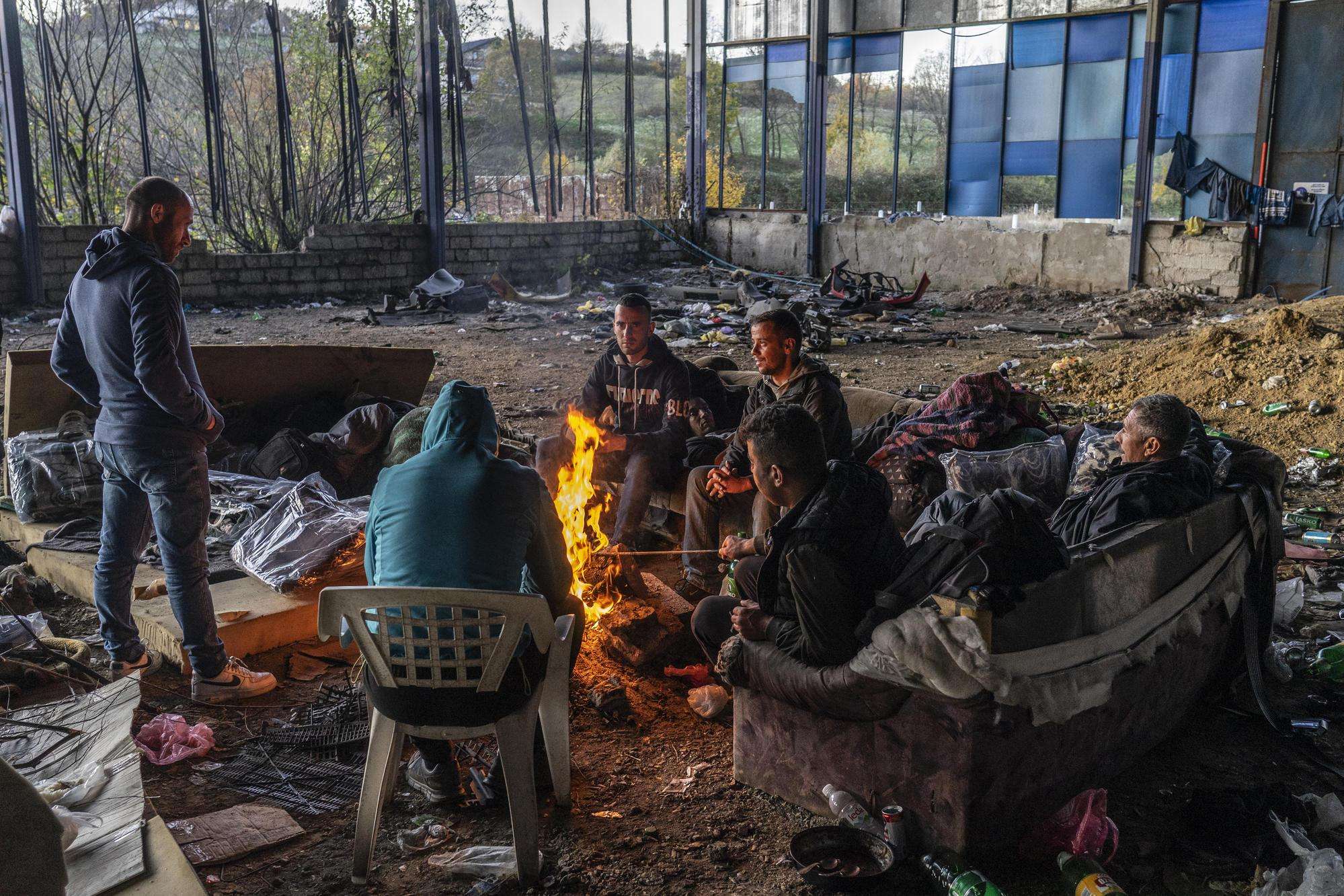NEW YORK, November 14, 2019—Thousands of people seeking safety in Europe are living in dangerously cold and harsh conditions in Bosnia and Herzegovina, the international medical humanitarian organization Doctors Without Borders/Médecins Sans Frontières (MSF) said today, warning that people may die without adequate shelter and other basic services.
Many are attempting to travel north to other destinations in Europe but are enduring harsh living conditions as border restrictions tighten in the region.
In recent months, Bosnian authorities have started to restrict people's movements between the country's cantons. Four official centers for migrants exist, but services are inadequate, and tensions are high, leading most people to stay elsewhere. Of the more than 6,100 migrants and asylum seekers around the border cities of Bihac and Velika Kladusa in Una Sana Canton, only 2,800 people are in the official centers, while the rest sleep in abandoned buildings or makeshift shelters in near-freezing temperatures. Most are from Pakistan, Iran, Syria, or Afghanistan.
In July, local authorities decided to move some of the migrants and refugees staying outside the official centers to Vucjak camp—a temporary site about five miles from Bihac. This tented camp does not meet minimum living standards, is not adequate for cold weather, and is surrounded by land mines. Medical services are provided in the camp by the Bosnian Red Cross and some volunteers, but access to medical care is limited. Despite the conditions, local police continue to forcibly transfer people from informal settlements to this camp. On November 13, the local authorities announced that Vucjak camp will stay open throughout the winter and will be used for new arrivals.
"The situation is very hard here—I never had to sleep in a tent before," said one young man from Pakistan, traveling with his 16-year-old brother. "At night the cold passes through the tent, and when it rains the water gets inside the tent. The food is really bad, the toilets are so dirty that we cannot use them, and the water for showers is freezing cold."

In recent weeks, MSF began providing medical and mental health services in a local medical center near Vucjak camp, where 800 to 1,000 people are now living. The main conditions MSF treats are skin conditions such as scabies and body lice and respiratory tract infections. MSF also provides treatment to survivors of violence, including sexual violence.
"Vucjak camp is a dangerous and inhumane place—no human being should live like that," said Nihal Osman, MSF's deputy field coordinator. "People arrive at our clinic from Vucjak in flipflops, without socks or jackets, a lot of them suffering from respiratory infections and from skin diseases caused by the horrific living conditions. It's heartbreaking to see and treat these people, knowing that at the end of the day they will have to go back to a tent and sleep on the floor. It is unacceptable to hear that this camp will remain open. It should be closed now."
MSF has been present in the Balkans for the last four years responding to the needs of people along the migratory routes. MSF restarted its response in early August in cooperation with the Bosnian Ministry of Health and currently receives an average of 60 patients per day in two locations. MSF medical teams have already referred several patients for specialized care for injuries caused by violence that was allegedly committed by border authorities.
"People who are not registered in official camps have no access to any kind of services and are more exposed to the risk of violence," said Osman. "Our response is designed to reach this group, who are most at need. Unless the authorities provide safe, appropriate, winterized accommodation and adequate services to these people, we fear that it's only a matter of time before we see people dying."




